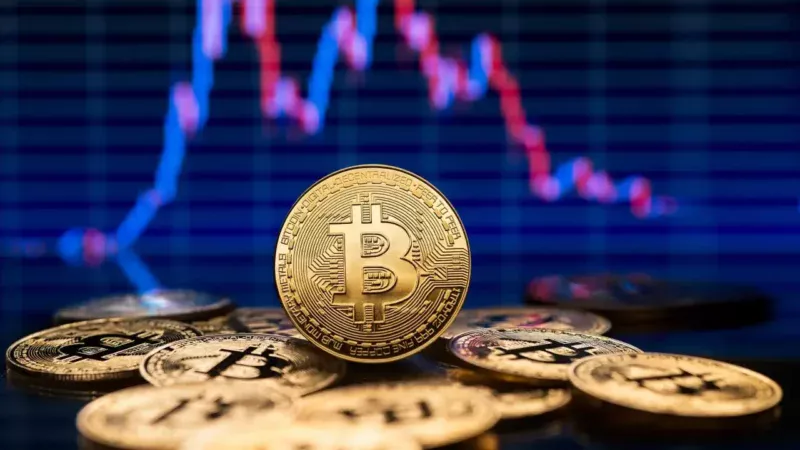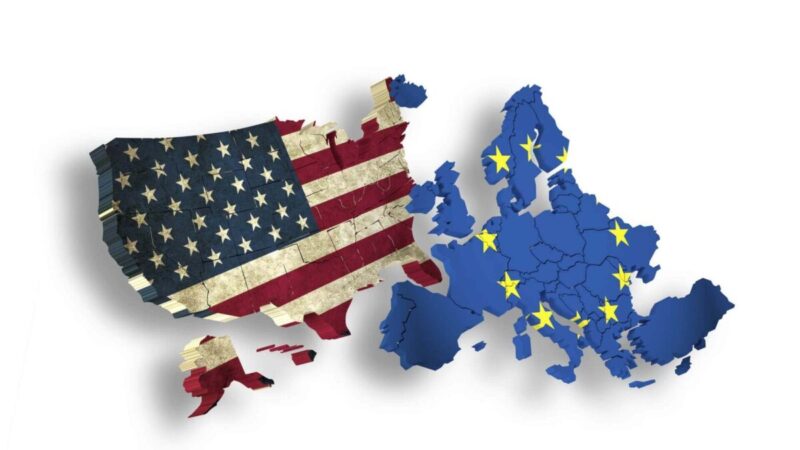What do you mean for the cryptoma market?

Donald Trump has long promised to increase tariffs in the event of his re-election, especially with a view to US neighboring states and business competitors such as China, Mexico and Canada. The White House confirmed a customs survey of 25 % to imported goods from Mexico and Canada and 20 % on imports from China from March 4.
But even if Trump believes tariffs or “Taiffs” for “the most beautiful word in the dictionary” – what do they really mean?
What are tariffs?
In essence, tariffs are taxes on imports that are raised by governments in order to either protect domestic industries or generate income. However, they are also a powerful business instrument that is often used to control the trade, to influence the markets and even to carry out economic battles.
Customs aim to shield domestic companies by making imported goods more expensive, but can also drive up the local prices and contribute to inflation. It is still one of the most discussed instruments in economic policy
In order to better understand how tariffs affect global trade and daily life, we have turned to James Butterfill, Head of Research at Coinshares.
What were the most important trade conflicts in the past and what effects did you have?
James Butterfill: There were many, but some of the largest trade wars occurred during the turn of the century around 1900:
-
Dingley customs law (1897): The import duties were raised to 52 %, which stimulated the US industry, but brought disadvantages for consumers through higher prices and damaged trade relationships.
-
The Payne-Aldrich-Zoll Act (1909): Customs should be reduced, but remained high, which delivers the divisions within the Republican Party.
-
The Fordney McCumber customs Act (1922): tariffs were imposed at record height (in some cases over 40 %), which led to economic retaliation from other countries.
Trade tariffs have generally harmed global growth. In the 1980s, trade voltages between the United States and Japan contributed to the speculation bubble in Japan, which ultimately burst and caused decades of economic stagnation.
Whenever customs wars threaten, they harm economic growth at a global level.
What effects would the increase in US tariffs?
Let's take Donald Trump at the word and we imagine that he keeps his promises regarding tariffs, immigration policy and tax cuts. In this case, inflation could speed up quickly. The problem, however, is that it would be bad inflation. For example, the costs for the purchase of a German car in the USA would increase significantly, which would cause consumers to rush their purchases before the tariffs come into force. This increase in expenses could temporarily boost retail sales and create the wrong appearance of a strong economy in the United States.
The first signs of this can already be seen in the inflation data in December. However, this type of inflation is an unproductive force in the economy. Good inflation arises in flourishing economy – when increasing prices are driven by increasing demand for goods and services. In contrast, we see an inflation that is driven by increasing wages due to the shortage of workers (since immigration restrictions reduce the range of cheap workers) and higher costs by import taxes. This type of inflation is inefficient and generally harms economic growth.
What effects can tariffs have on crypto?
With over 580 million users worldwide (as of January 2024, source: crypto.com), cryptocurrencies have become an important part of the global economy. In view of the fact that Bitcoin is classified as a raw material in many countries, especially in the United States, it is worth checking how new US tariffs could affect Bitcoin and the wider cryptom market.
Once again we asked James Butterfill for insights.
How would the impact of tariffs on the world also reflect in Bitcoin?
James Butterfill: In the short term, tariffs would be negative for Bitcoin. In contrast to gold, Bitcoin has a growth component, so it reacts to economic trends and liquidity cycles.
First, the tariffs could:
-
Slowing economic growth and thus reducing the demand for risk systems such as Bitcoin.
-
Inflation increases, which could lead to speculation on higher interest rates.
-
Let the Bitcoin course temporarily fall-because it often correlates with shares.
In the long term, however, there is a different perspective. At some point the market will recognize that the United States cannot further increase interest rates while the economy is weakening (stagflation). If that happens, the Bitcoin will probably recover while stocks continue to stumble.
Bitcoins correlation with the NASDAQ is currently around 40 %, significantly below its maximum 72 %. But as we saw in March 2023 during the banking crisis, the Bitcoin can decouple and act as a safe harbor: This is the Bitcoin paradox of being able to be a volatile asset and a safe harbor.
Should Bitcoin be regarded as a different type of asset in this special context than the rest of digital tokens?
J.B.: Yes. Old coins are much more growth -oriented and closely connected to the technology industry.
For example:
-
Ethereum and Nasdaq have a higher correlation than Bitcoin and the Nasdaq.
-
Ethereum and other old coins are generally more like tech shares, while Bitcoin is increasingly viewed as digital gold.
This divergence is likely to continue, since Bitcoin is more likely to behave against economic uncertainty and old coins are still bound to the technology sector.
Some food for thought
Customs shapes economies, determine trade alles and can trigger trade conflicts, which in turn result in wave effects on the global markets, supply chains and consumer expenses.
In the short term, higher US tariffs could:
In the long term, however, Bitcoin's role as security could be strengthened, especially if customs policy leads to economic instability.
One thing is certain: the political decisions of the United States will continue to influence the global markets and very likely the future of Bitcoin.





